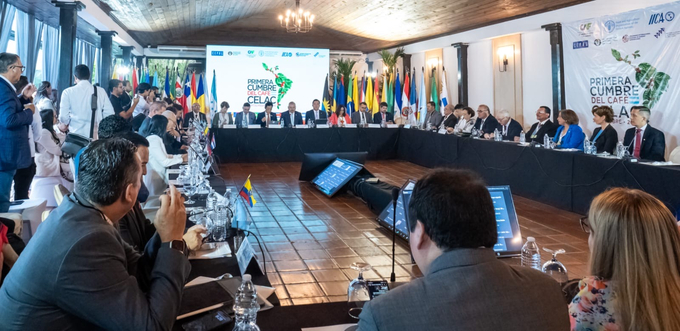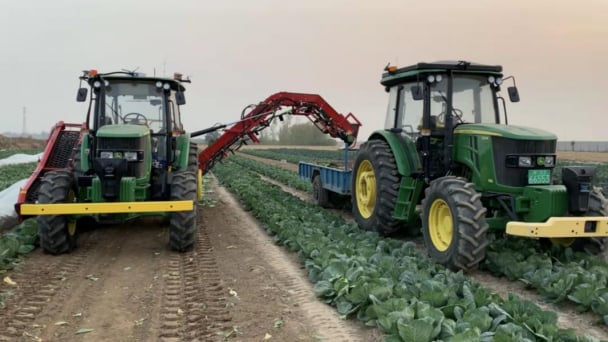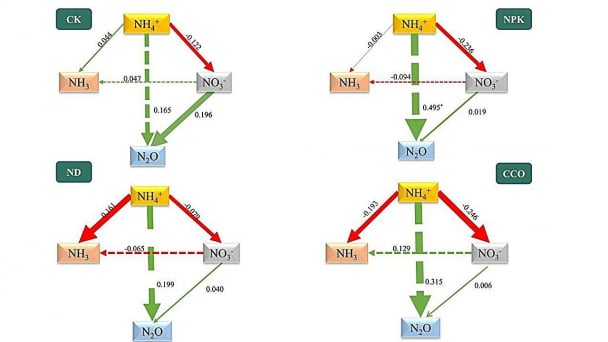June 25, 2025 | 17:10 GMT +7
June 25, 2025 | 17:10 GMT +7
Hotline: 0913.378.918
June 25, 2025 | 17:10 GMT +7
Hotline: 0913.378.918

The CELAC Fair and Permanent Coffee Forum will continue until Thursday with the theme ‘Agriculture and Family Economy for Regional Development'.
At the opening of the first Fair and Permanent Coffee Forum in Honduras, QU Dongyu, Director-General of the Food and Agriculture Organization of the United Nations (FAO), emphasized the critical need to exchange knowledge and transform the coffee sector into a more efficient, inclusive, resilient, and sustainable industry.
Amid numerous complex and interconnected challenges facing the world such as food insecurity, the climate crises, and increasing geopolitical tensions, the coffee sector, with a global production value of approximately $15 billion annually, can play a crucial role in many contexts related to the global transformation of agrifood systems, Qu explained.
Smallholder producers account for a large share of global output, and coffee exports represent a vital source of revenue for many low-income countries. “But the coffee sector faces several challenges that need urgent attention such as loss of biodiversity, pests and diseases and high price volatility, among others,” he warned.
Organized by the Community of Latin American and Caribbean States (CELAC), the Coffee Forum features representatives from almost all 33 member countries of the regional bloc, currently presided over by Honduras. Some of the world's finest coffee beans are being showcased and opportunities are being provided to establish commercial alliances and explore the development of the coffee sector within the region.
The Director-General commended Honduras and other coffee-producing countries of the region such as Brazil, for securing the endorsement of an International Coffee Day during the recent 76th Session of the FAO Committee on Commodity Problems. The Committee’s recommendation will be considered by the United Nations General Assembly later this year, he informed.
The sector in Honduras
Honduras, the largest coffee producer in Central America and the Caribbean, and ranked among the top 10 globally, is deeply reliant on its coffee industry. This sector plays a vital role in the country's economy, generating jobs, export revenues, and supporting the livelihoods of smallholder farmers. With over 90% of Honduras' coffee output exported, it also serves as a crucial source of foreign exchange.
“To enable the coffee sector to leverage its potential, it is crucial to prioritise impactful solutions, the FAO Director-General said, identifying some key priorities.”
Among them, modernizing infrastructure and technology through investments in advanced coffee processing facilities, marketing channels, and transportation networks to enhance bean quality and reduce post-harvest losses.
Qu also spoke about promoting climate-resilient farming practices—such as shade-grown coffee and agroforestry—to safeguard crops against extreme weather, pests, and improve soil health, and invited Honduras to focus on climate adaptation measures.
Similarly, he highlighted the importance of strengthening the coffee value chain by building a strong national brand and expanding international trade relationships to increase value addition and raise the small-holder farmer incomes. Finally, he explained that empowering coffee growers with training on best practices, access to credit, and market insights is essential for long-term success.
Qu reaffirmed FAO's readiness to work with the Honduran government to provide technical support for transforming the coffee sector. He urged continued collaboration to achieve tangible improvements in the industry.
“I will be here to support this historical mission, which is part of FAO's mandate to promote value chains for smallholder farmers and build a better future,” he concluded.
The CELAC Fair and Permanent Coffee Forum will continue until Thursday with the theme ‘Agriculture and Family Economy for Regional Development'.
(FAO)

(VAN) In the suburbs of Beijing, there is an agricultural center spanning over 150 hectares dedicated to research, demonstration, and application of high-tech and precision agriculture.

(VAN) Researchers from the Institute of Applied Ecology of the Chinese Academy of Sciences have developed a new environmentally friendly fertilizer additive that significantly enhances crop yields while reducing emissions of harmful gases.

(VAN) Poultry production in Poland, which has only started recovering from devastating bird flu outbreaks earlier this year, has been hit by a series of outbreaks of Newcastle disease, with the veterinary situation deteriorating rapidly.

(VAN) Extensive licensing requirements raise concerns about intellectual property theft.

(VAN) As of Friday, a salmonella outbreak linked to a California egg producer had sickened at least 79 people. Of the infected people, 21 hospitalizations were reported, U.S. health officials said.

(VAN) With the war ongoing, many Ukrainian farmers and rural farming families face limited access to their land due to mines and lack the financial resources to purchase needed agricultural inputs.

(VAN) Vikas Rambal has quietly built a $5 billion business empire in manufacturing, property and solar, and catapulted onto the Rich List.